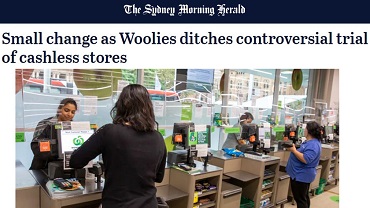The Australian Alert Service is the weekly publication of the Australian Citizens Party.
It will keep you updated on strategic events both in Australia, and worldwide, as well as the organising activities of the Citizens Party.
To subscribe to the Australian Alert Service, it's easy, and it's secure.
Click here for subscriptions within Australia
Click here for overseas subscriptions
Lead Editorial
10 March 2021
Vol. 23. No. 10
The policy framework of national governments determines the environment in which people and businesses operate, and whether they thrive or struggle. That geometry, which includes policies covering the economy, provision of crucial services and infrastructure, banking and regulation, and even the judicial system, is oriented to certain ideologies and philosophies, coming not only from the government in power, but from those behind the scenes advising them and drafting policies.
The prevailing ideology in most advanced nations today is the policy scourge known as neoliberalism and neoconservatism—infecting both sides of the political divide with only minor differences. Establishment think tanks, private consultancies, big banks and media all have a role in enforcing this policy direction, but ultimately it has to be acceptable to the population or it won’t last.
It has become obvious that those policies have destroyed our nation and the population is rebelling. Extreme policies like stealing bank depositor’s money (bail-in) and banning large cash transactions provoked alarm. Of course, if these agendas remained secret, as their schemers intended, the population would have been none the wiser. The Citizens Party’s bombshell exposure in this week’s AAS of the plot to privatise Australia Post, coming on the heels of the bail-in and cash ban fights, is intersecting an already charged-up public, of whom a growing percentage know how to effectively intervene in the political process through MP meetings and letters, submissions and parliamentary committee processes. And they are emboldened, because they have seen that it can work.
One example, backing up the defeat of the government’s proposal to ban cash transactions over $10,000, is Woolworths’ decision to abandon a “cashless” trial being conducted in metro stores across Melbourne, Sydney and Brisbane, after it met with fierce opposition. Customers refused to shop in cashless stores and in one scandalous situation a Woolies employee paid for a homeless man’s food when the store she worked at wouldn’t accept his money.
Consider this: Why did the banks agree to pay much more for services rendered by Australia Post which previously they had been getting for free? It was considered an impossible deal, but in 2018 Christine Holgate pulled off this coup. It’s no coincidence the deal occurred right in the middle of the 2018 banking royal commission, following the intensive 2017 campaign against bail-in. Australia’s banks were being pummelled, for the first time since the days of “old” Labor fighting the private banking cartel it called the “Money Power”. The Citizens Party was fighting an intense campaign to separate retail and investment banking to protect depositors— supported by the shocking revelations from the royal commission—for which independent MP Bob Katter introduced legislation into parliament. MPs across all parties who broke from the establishment to support the banking inquiry were very receptive. Now, the government’s cynical proposal to boost the banks by junking responsible lending laws, against the recommendation of the royal commission, has got the same politicians irate, and the potential exists to smash this policy out of the House. The more desperately the establishment tries to reinforce the collapsing banking edifice, the worse politically the situation gets—for them!
The Christine Holgate affair has captured the attention of a public already awakened to these issues. It has both fuelled the public’s hatred of privatisation and the banking/ consultancy fraternity driving it, and inspired people to rally behind the solution of a public postal bank, a very popular proposition in Australia’s corrupted banking environment.
Furthermore, the full gamut of the “great reset” of financial architecture demanded by the neoliberal-neoconservative fanatics is coming to light, characterised by a “financial regime change” which would openly and officially transfer policy and fiscal decisions to private financial institutions like asset manager BlackRock (Almanac), which is dedicated to bankers over people and industry. Our fight is to defeat that agenda and anchor public policy to the common good of the nation’s citizens.
In this week's issue:
- Senate inquiry must expose the privatisation plot against Australia Post
- Getting in the way—how Christine Holgate upset a $75 trillion privatisation agenda targeting Australia Post
- Australian government must demand Julian Assange’s release
- Penny-pinching governments are killing our elderly
- Public servants push back against governments’ outsourcing mania
- Bond market upheavals and central bank conjuring
- ‘The 12 or 13 largest banks’ got trillions from Fed repo loans
- Biden’s first 40 days
- American scientists fight back against anti-China, anti-science witch-hunt
- The ‘overview effect’—in time and space
- ALMANAC: BlackRock’s march to world power
Click here for the archive of previous issues of the Australian Alert Service








